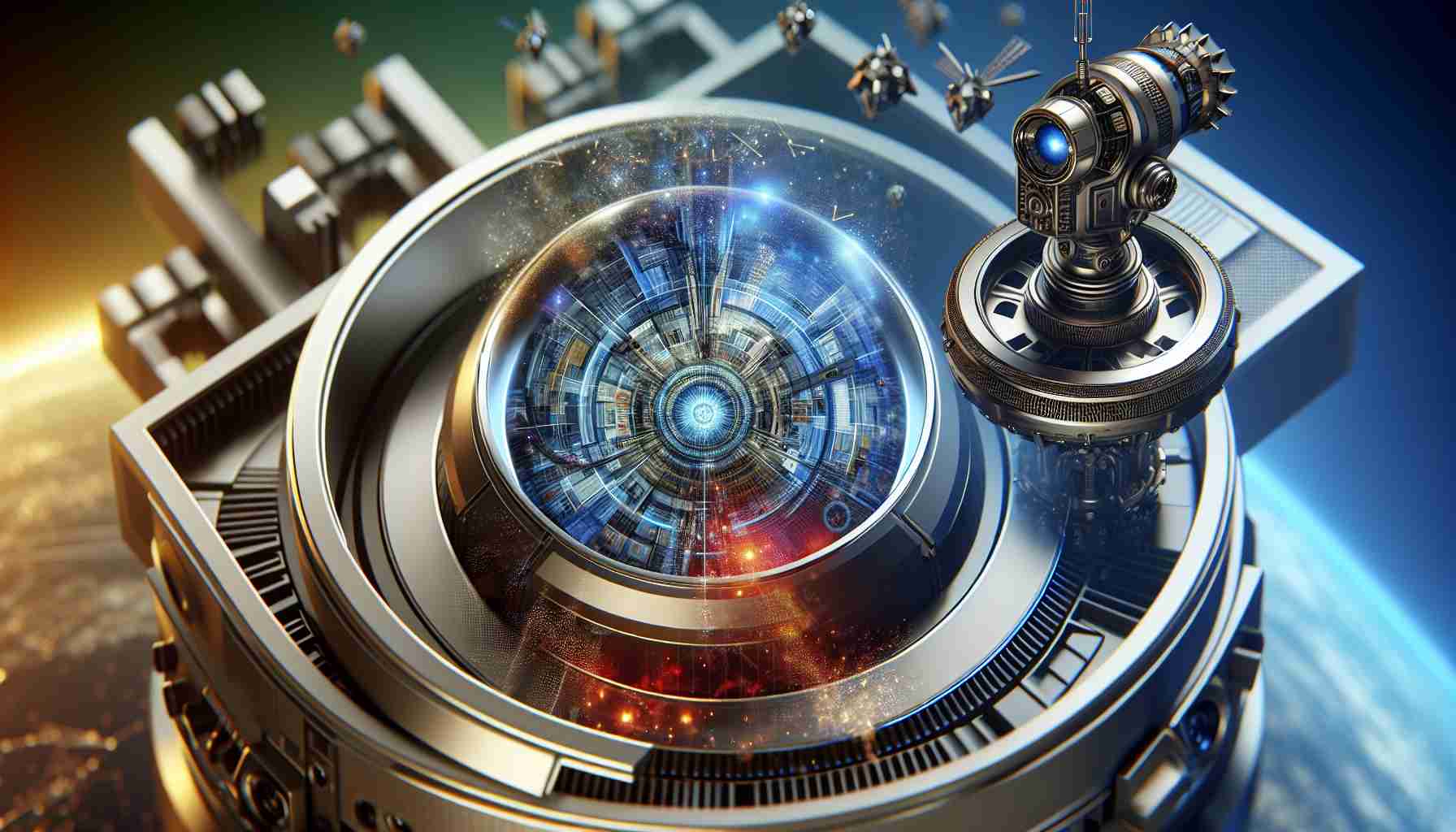Capcom is actively exploring the integration of artificial intelligence into its game development process. In a recent discussion translated from an interview with Google Cloud Japan, the company’s technical director, Kazuki Abe, expressed optimism about utilizing AI, particularly during the early stages of project development.
Abe highlighted the challenges faced by concept artists, who are tasked with generating an overwhelming number of unique ideas related to game environments and settings. This stage often requires artists to create more concepts than can ever be used, which can slow down the development process significantly.
He emphasized the extensive work needed to design environmental objects within games, detailing how these components must be meticulously drafted and brought to life within the game engine. Many of these details go unnoticed by players, yet they are crucial for creating an immersive experience.
The potential of generative AI lies in its capacity to alleviate some of this burden. By generating a multitude of initial ideas quickly, AI allows developers to focus on refining and implementing the best concepts. Abe believes this could greatly enhance efficiency, providing a competitive edge in the rapidly evolving gaming sector.
Feedback from Capcom’s internal teams regarding prototype AI programs has been very positive, suggesting that the future of game development may soon include more advanced AI capabilities. As AI continues to evolve, it might redefine how creativity and technology intersect in the gaming industry.
The Broader Implications of AI in Game Development
The integration of artificial intelligence in game development, as explored by Capcom, presents profound implications for society and culture. As AI tools streamline creative processes, the traditional roles of artists and designers may shift, leading to a democratic reshaping of how art is perceived in the digital sphere. By producing diverse conceptual frameworks swiftly, AI can foster broader creative diversity, allowing smaller studios to compete on a larger scale without the excessive labor traditionally required.
Moreover, the global economy stands to benefit significantly from this technological synergy. Enhanced efficiency can lower development costs, potentially decreasing game prices for consumers and maximizing profit margins for creators. With the gaming industry projected to surpass $200 billion globally by 2023, the impact of cost-effective AI tools could serve as a catalyst for market expansion, stimulating job creation in tech development while also prompting ethical discussions surrounding employment displacement.
While the environmental footprint of game production has been minimal thus far, future trends may see a shift as AI optimizes not only creative processes but also resource use. Reduced iterations in physical design, less waste in prototype development, and optimized server usage could lead to greener practices.
As AI continues to evolve, its long-term significance in the gaming sector will challenge our very notions of creativity and collaboration, ultimately rewriting the rules of engagement between technology and artistry.
Unlocking the Future: Capcom’s Game-Changing AI Innovations in Game Development
Capcom Explores AI Integration in Game Development
Capcom, a leading name in the gaming industry, is actively exploring the integration of artificial intelligence (AI) into its game development process. During a recent discussion translated from an interview with Google Cloud Japan, Kazuki Abe, Capcom’s technical director, shared insights into how AI can streamline creative workflows, particularly in the early stages of game projects.
The Role of AI in Enhancing Creativity
Abe pointed out the significant challenges faced by concept artists, who are often responsible for producing a vast array of unique ideas for game environments and settings. The requirement to create numerous concepts, many of which will never be used, can lead to inefficiencies that slow down the entire development process. By leveraging AI, developers can generate a plethora of initial concepts quickly, allowing artists to concentrate on refining and selecting the most promising ideas.
Advantages of AI in Game Development
1. Increased Efficiency: By automating the initial brainstorming phase, AI allows teams to work faster and more effectively.
2. Enhanced Creativity: With AI handling the generation of ideas, creative teams can focus on innovation and enhancing the player experience.
3. Cost Effectiveness: Reducing the time spent on concept generation can lead to significant cost savings during the development cycle.
Feedback and Future Prospects
Internal feedback from Capcom’s teams regarding experimental AI tools has been notably positive, indicating a strong interest in further advancements. As AI technology progresses, there is a robust possibility that it will fundamentally alter the landscape of game development. The intersection of creativity and technology in gaming is poised for significant transformation, potentially leading to more immersive and dynamic gaming experiences.
Use Cases of AI in Game Development
– Environment Design: AI can help design intricate environments and objects, which are crucial for immersive gameplay.
– Character Development: Generative AI can assist in creating character designs and backstories rapidly.
– Narrative Generation: AI tools can help outline and draft compelling story arcs, allowing writers to focus on depth and engagement.
Limitations of AI in Game Development
While the prospects are exciting, there are restrictions that should be considered:
– Lack of Human Touch: AI-generated content may lack the emotional depth that human creators provide.
– Quality Concerns: The quality of AI-generated ideas varies, which necessitates considerable refinement and selection.
– Dependence on Data: The effectiveness of AI systems depends on the data used for training, which can limit creativity if not diverse enough.
Pricing Trends and Market Insights
As AI tools become more prevalent in game development, we may see a shift in pricing structures across the industry. Companies could begin investing heavily in AI solutions, leading to new trends in game design primarily influenced by advanced technologies. This innovation may also affect market competition, with AI proficiency becoming a significant differentiator for gaming companies.
Innovations on the Horizon
The future of AI in gaming could feature even more sophisticated applications, such as real-time game adjustments based on player behavior. As Capcom and other industry leaders continue to experiment with AI integration, the potential for innovative gameplay experiences is vast.
In summary, Capcom’s exploration of AI within its development processes is paving the way for a new era in gaming. As AI technology advances, it promises to enhance efficiency, creativity, and ultimately, player engagement, reshaping how games are conceived and developed.
For more insights into the gaming industry, visit Capcom’s official site.



















